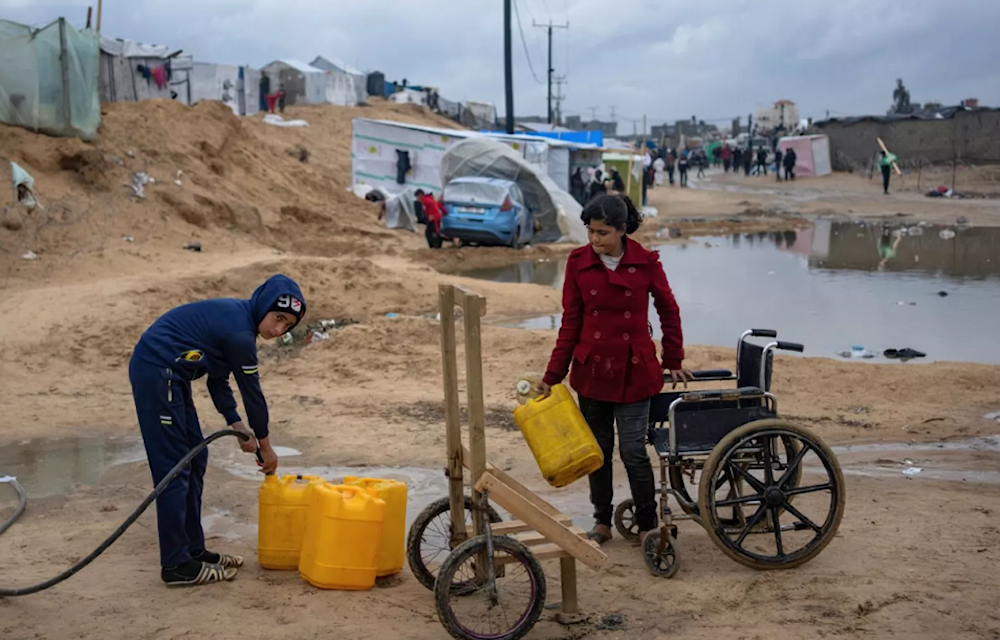War on Gaza caused major environmental damage: UN
The environmental repercussions of "Israel's" war on Gaza are endless with reports repeatedly revealing detrimental effects.
-

Palestinians displaced by the Israeli airstrikes in Gaza gather water in a makeshift tent camp in Rafah on the border with Egypt on January 27, 2024. (AP)
The war on Gaza has caused unparalleled soil, water, and air pollution in the region, demolishing sewage infrastructure and leaving behind tons of debris from explosives, according to a United Nations assessment of the war's environmental impact released on Tuesday.
A preliminary assessment by the United Nations Environment Programme shows that the war has quickly reversed limited progress in improving the region's water desalination and treatment of wastewater facilities, restoring the Wadi Gaza coastal wetland, and investing in solar power installations.
Last month, a BBC report indicated more than half of Gaza's water sites have been destroyed and contaminated in targeted Israeli aggression with 53% of the 603 examined destroyed or damaged.
According to the UN report, explosive weapons caused around 39 million tons of debris with each square meter of the Gaza Strip presently having more than 107 kilos (236 pounds) of debris, 5 times the debris accumulated during the 2017 battle for Mosul in Iraq.
UNEP Executive Director Inger Andersen expressed that this is "deeply harming people's health, food security and Gaza's resilience."
Eoghan Darbyshire, a senior researcher at the Conflict and Environment Observatory, a UK-based charity, explains that understanding such impacts of war is a "grand challenge of our time," adding that "the impacts will not only be felt locally where the fighting is taking place but may be displaced or even felt at the global scale via greenhouse gas emissions."
The UN evaluation follows a request from the Palestinian Environment Quality Authority in December 2023 for UNEP to examine environmental damage. UNEP assists governments with pollution reduction and control in regions impacted by armed conflict or terrorism.
Security concerns and access constraints mean relying on sensing surveys, data from Palestinian technical bodies, and damage estimates from the World Bank for the study. Darbyshire stated that ground measurements will be essential in understanding the degree of soil and water contamination.
A 2020 assessment by the UN Development Programme showed "Israel's" long-term occupation has already created significant environmental issues like depleted water quality and scarcity, and the report notes that Gaza's 5 wastewater treatment plans have been shut down.
Gaza also had one of the greatest concentrations of rooftop solar panels in the world, and "Israel" has destroyed a major section of the developing infrastructure and shattered panels that release lead and heavy metal toxins into the soil.
Darbyshire stated that he believes given the extent of environmental degradation, large areas of Gaza "will not be recovered to a safe state within a generation, even with limitless finance and will."

 3 Min Read
3 Min Read








